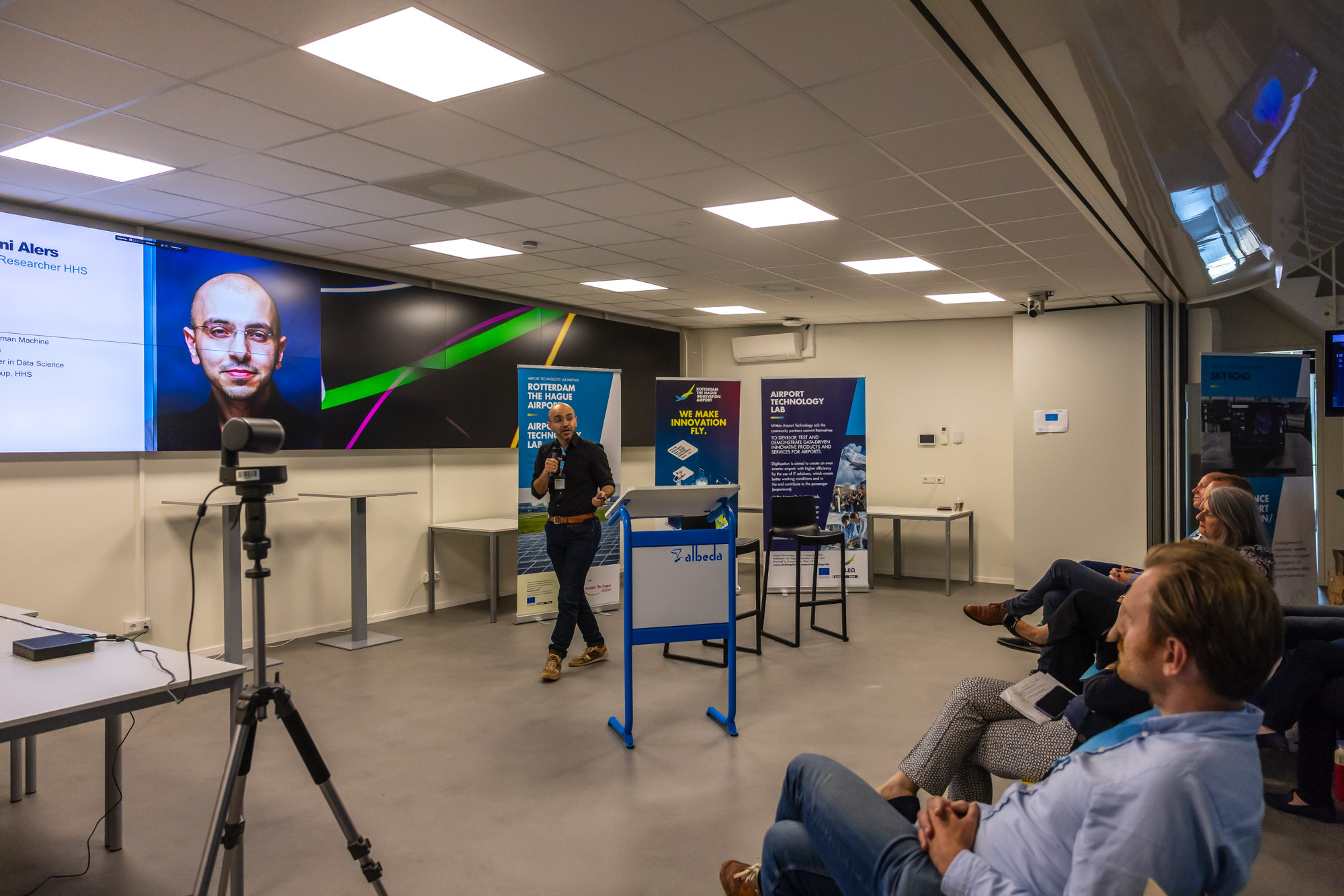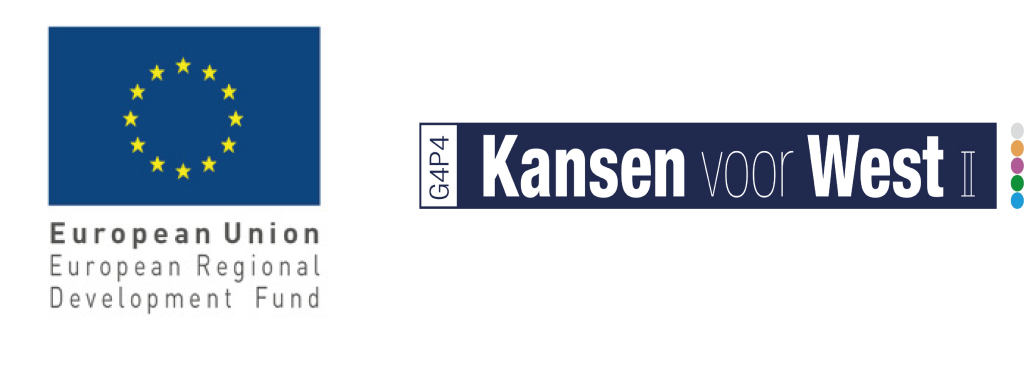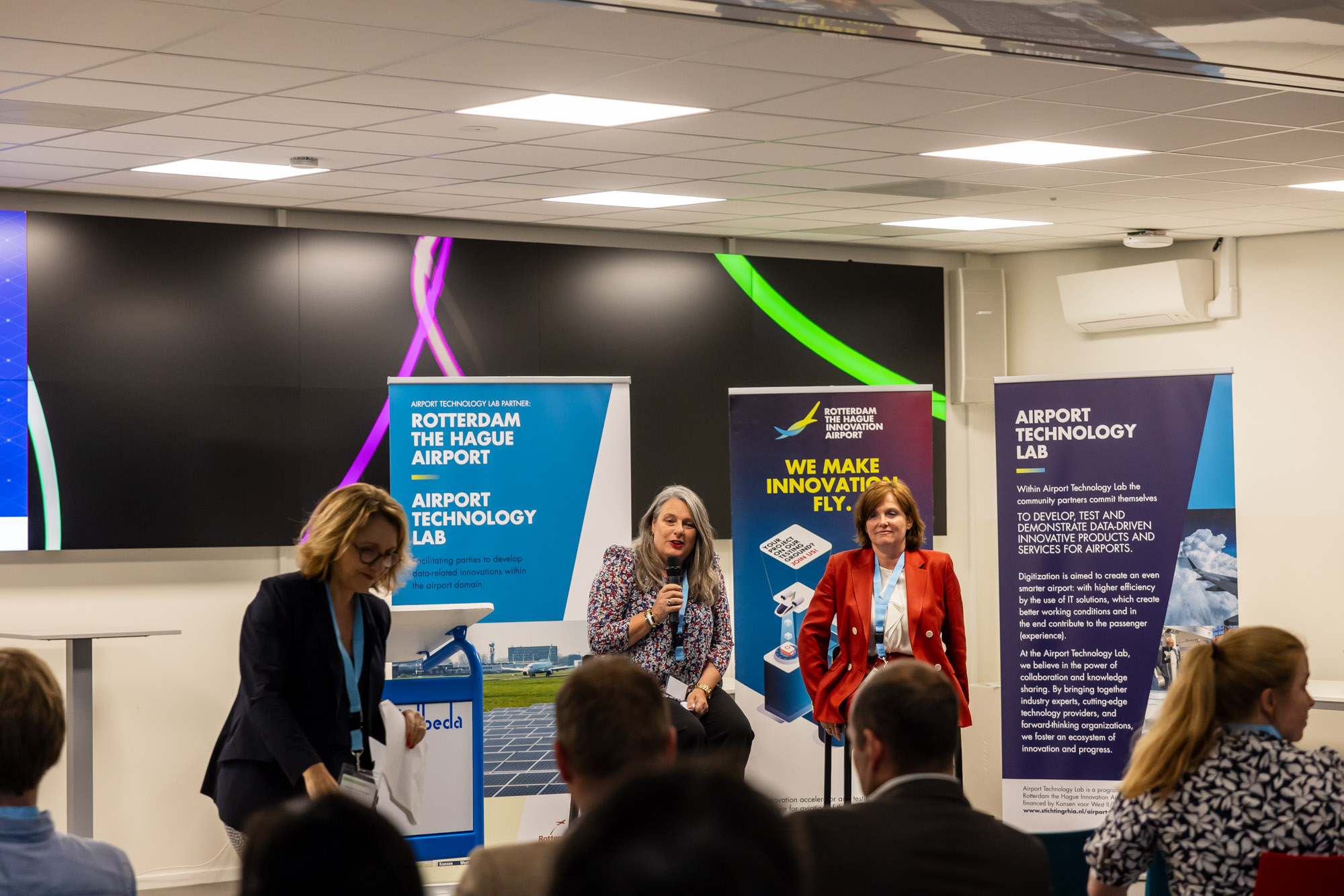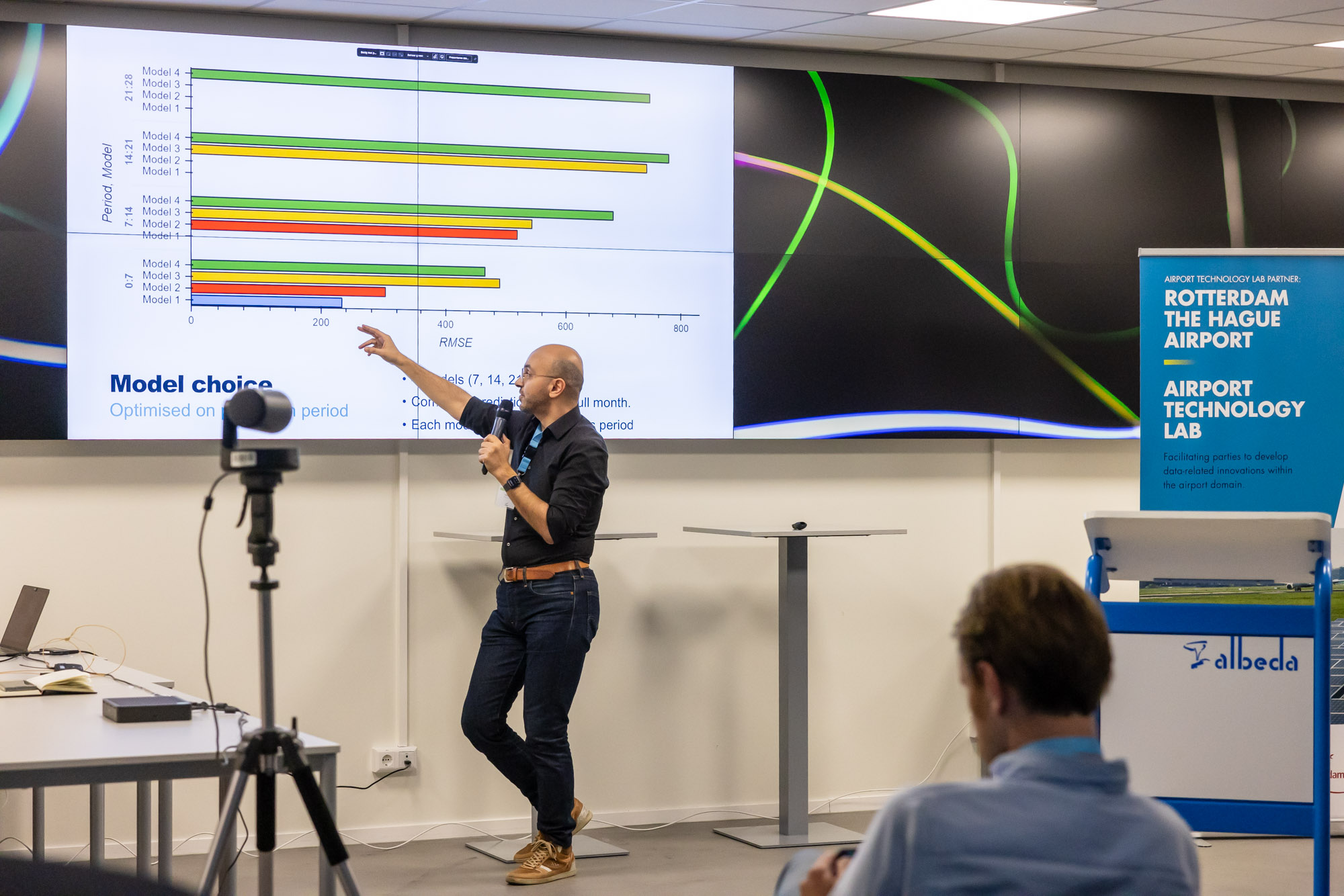

Day 1: Revelations and Recognitions
The first day kicked off with an exploration of the outcomes and value derived from ATL projects over the past years. Keynote speakers and project leaders took to the stage, sharing insights, findings, and future prospects. Among the distinguished presenters was Hani Al-Ers from Haagse Hogeschool, who eloquently presented our innovative algorithm on predicting passenger flight load using XGBoost. The presentation elucidated how our team harnessed seven years’ worth of data from Rotterdam The Hague airport to develop this cutting-edge predictive model.
The day was interspersed with breakout sessions, fostering roundtable discussions on diverse topics ranging from digital identity to open airport data. These sessions were a testament to the collaborative spirit of the ATL community, with experts and enthusiasts exchanging ideas and envisioning the future of the aviation industry.
Day 2: Forward-Looking Innovations
The subsequent day shifted its focus towards innovation, specifically on how an expanded ATL consortium could spearhead new digitization projects. The discussions revolved around the challenges and opportunities in sustainable aviation, digital identity, and the digital twin concept, among others. The highlight of the day was the signing of ATL 2.0 with key stakeholders, marking a commitment to further innovation and collaboration in the sector.
Parallel to the main event, an exciting hackathon was in full swing. Creative minds collaborated to ideate and develop solutions aimed at creating Safe, Seamless & Sustainable Passenger Journeys. The culmination of the hackathon saw teams presenting their innovative solutions, followed by an award ceremony recognizing the most outstanding projects.


The Hague University's Contribution
At the heart of the event was our project, an endeavor by The Hague University’s Data Science research group. We addressed a pressing challenge in the aviation industry: predicting passenger flight load with utmost precision. To tackle this, we reviewed historical methodologies and introduced an innovative algorithm using XGBoost, a cutting-edge machine learning technique.
Our research spanned seven years of data from Rotterdam The Hague airport, from 2014 to 2021. With this comprehensive dataset, our team developed a reliable prediction algorithm, emphasizing the XGBoost approach. The results were promising, with a Root Mean Square Error (RMSE) of just 300 passengers per day, highlighting the algorithm’s accuracy and reliability. Such breakthroughs promise a transformative phase for the aviation industry, emphasizing efficiency, sustainability, and forward-thinking.
As the curtains drew on the ATL Showcase event, it was evident that the future of aviation is bright, digital, and sustainable. Our heartfelt thanks go out to all the organizers, participants, and attendees who made this event a grand success. We’re excited about the future collaborations and innovations that will stem from the discussions and connections made during these two days.

ROTTERDAM THE HAGUE INNOVATION AIRPORT
RHIA is a runway for innovation; a hotspot where entrepreneurs, researchers and students bring innovation and sustainability to life. Together, we create a cleaner, quieter and more sustainable future for the aviation industry. Together, we make innovation fly.

